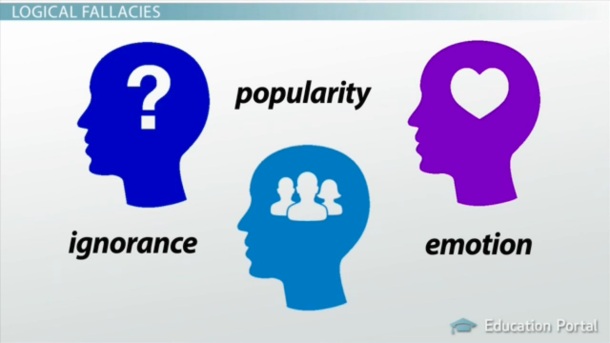
If you are reading this, being argumentative is your chief trait. Your DNA has more-than-average space for wrangling, discussion, debate, gossip and tussle. You enjoy discovering and nailing psyches of your fellows, friends and family members. You want to change their perceptions and the way they believe. In short, you want them to become ‘you’.
Essentially, almost all human interaction seems lifeless without argument(s). Many social decisions demand solid and concrete arguments. We decorate arguments with science (and pseudo-science). We decorate them with logic – moral, ethical, legal, philosophical, cultural, technological, economical, personal, managerial, aesthetical, – or any ‘al’ of that sort.

Before going ahead, let it be made clear that winning an argument does not necessarily mean winning over the person. You might win an argument and lose the trust of the person with whom you are arguing. In other words, while your opponent may concede the point, either due to lack of energy or inability to argue any more, he may still go with his personal perception or belief. Human mind is like that; it often filters out inconvenient information.
So, without further beating about the bush, here are some time-tested argument tactics from my personal experience. Do not try them at home or office. You might get hurt pretty badly!
- Change the Scope
This is the most common tactic, where in by enlarging or reducing the scope of an argument, you can find a comfortable position in the argument battlefield. From there, you can easily attack your enemy. It takes a while for transforming an argument from ‘the quality of cat food’ to one for dog food, and even longer to convert it into an argument about human food. With a little more effort, you will end up on issues of starvation and food shortage. Are you in a strong position? There you go!

Looking for an example for the other way round i.e. reducing a broad topic to a finer one? Just reverse the order of steps and you will land on your otherwise strong area i.e. cat food.
- Use Logical Fallacies
No argument can be totally free from fallacies. As per Nietzsche, there are no facts, only perceptions. That being said, it does not take much effort in detecting a fallacy or two in your opponent’s argument. Once you have convinced your argumentative enemies that their points are fraught with fallacies, they will have no choice but to accept yours. Take, for example, a man exhibiting a seemingly high level of patriotism on a national holiday which his wife finds disturbing. All she wants is to go out for a family picnic instead of chanting national anthems. “Okay, let’s persuade our boys to get enlisted in the army. Let them be martyrs for the Flag. Is that all you want? Fine. The man, moved by the ‘appeal to emotion’ fallacy, changes his mind and the starts hating national days for the fear that it would turn him ‘an-emotional-dad-who-lost-his-sons-to-a-bloody-war’.

Scientific research can go wrong due to their lack of subjectivity. Natural things can be hurtful too. Personal incredulity can be right or wrong depending on approach and practice of the person. In short, every argument can be pricked with one or more of these fallacies to weaken its strength.
- Use Rhetoric
This blog has already used one by Nietzsche. Rhetoric, broadly speaking, is a set of speech persuasion tools evolved over the wide course of human intelligence, wisdom and experience. Proverbs, quotes, parables, analogies, idioms, phrases and sometimes even scientific formulae can be used as rhetoric to add wings to your arguments. Rhetoric comes in really handy for political speeches, analysts’ views, scholars’ sermons, marketers’ slogans and even teachers’ lectures.

Here is an instance: “Early bird catches the worm’.
Counter logic. “It is the second mouse that gets mouse in the mouse trap”
Another one: ‘’A stitch in time saves nine’’
Counter: ‘’It is never too late to mend’’
While these pairs seem to complement (rather than conflict) each other, the thing to note here is that we would use them as per the need of arguments. So instead of saying ‘once a liar … always a liar’ in a situation where my kid has spoken untruth, I would quote him the famous fable of ‘Nip the Evil in the Bud’. That, of course, would be reversed when my office junior does the same.
We are concerned with expected outcomes of our speech, not with words. While dictionaries keep them intact, meanings of the words keep on changing in our minds according to our situation, knowledge, experience, socialites and spirits.
- Time Travel
I do not know whether man will, in reality, time travel. But time-traveling is a fairly good technique in the art of argumentation. By affixing reasons based on history or future, you can make your opponents lose their grip on the argument. Business meetings call these reasons ‘plans’. Media call them ‘trends’.

Talk about history and/or future and your opponent will clearly miss his/her point. You can map a chart of progressive technology, science or knowledge and infuse a not-so-near obsolescence of things, people, ideas or culture. You can sugar-coat obsolescence by good-old-times stories. Determine your place or side of the argument, and apply them. They really work.
- Empathize
Empathy – putting yourself in someone else’s shoes – can give great insights into your opponent’s way of thinking and processing information. Once empathetic, your tone becomes theirs. You tend to attack the argument without letting the person understand what is going on. Call it diplomacy, hypocrisy or linguistic flattery; it works without hurting the sentiments of the opposition.
Last Word
Arguing is not everyone’s piece of cake. It relates to the human instincts to fight, which is helpful and hurtful, depending upon the scenario. Without arguments, the world would not have met the progress. In fact, all progress or destruction owes much to our ability to argue or remain silent. In the end, all rejoice or all repent.
WARNING: Action, power and authority speak louder than words. Never apply these techniques where speech persuasion does not matter.